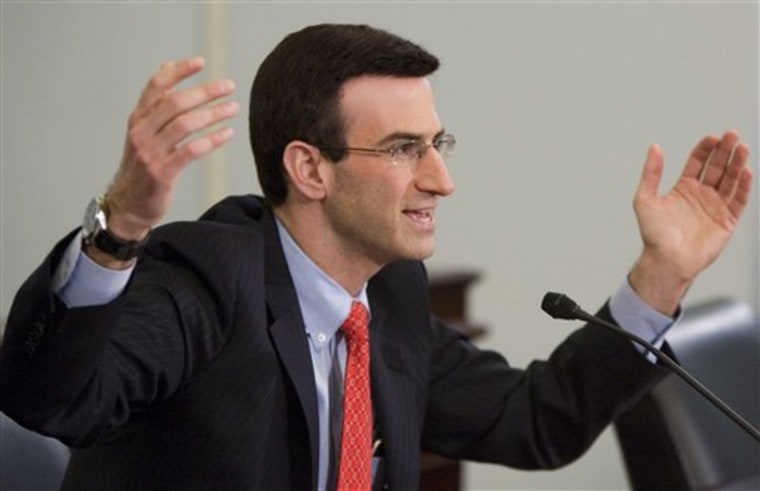President Barack Obama's budget director rebuffed congressional demands for specifics on the administration's multibillion-dollar plans for health care, telling lawmakers that deciding how the money is spent is largely up to them.
That response from Peter Orszag, director of the White House Office of Management and Budget, frustrated Republicans and a few Democrats on Tuesday as the Senate Finance Committee held the first of many hearings on overhauling the nation's health care system. The president's budget calls for a 10-year, $634 billion "down payment" on extending coverage to 48 million uninsured Americans.
"Let me just note immediately, so that perhaps we can avoid the typical Washington game of gotcha, the administration has been very clear that we put a significant down payment on the table," Orszag said.
"But on exactly what the administration does and does not favor on the benefits and coverage side, you should not expect and you will not be receiving definitive answers from me," he said.
That left the committee chairman, Sen. Max Baucus, D-Mont., grasping for more.
"How can we get everyone covered?" he asked Orszag.
"How do we coordinate this?" Baucus asked. "Is there anything that's off the table?"
"We need some help," Baucus said. "This is not easy."
Orszag said nothing was off the table, coordination would take a team approach and as for covering everyone, "There are lots of different ways of getting there but it's clear we have to get there."
Baucus has pledged that his committee will pass a comprehensive health reform plan by early summer. It's a top goal for Obama, who's working to avoid the mistakes of former President Bill Clinton, whose administration crafted a giant health bill behind closed doors with little input from Congress. The effort failed.
Yet Tuesday's hearing illustrated that the opposite approach has its pitfalls, as senators peppered Orszag with questions that he wouldn't or couldn't answer.
"At this point I can't answer the questions," Orszag told Sen. Jim Bunning, R-Ky., who wanted to know how much more money the administration would need. Experts have said a plan to cover all Americans could top $1 trillion but Orszag demurred, saying it depends on the approach.
Half the money in Obama's "down payment" is to come from cuts in government health programs, and half from tax increases over a 10-year period, with both approaches already drawing opposition.
Obama's campaign proposal called for setting up a national insurance marketplace through which people could pick private insurance or opt for a government plan.
Baucus' health proposal also includes such a public plan, which has emerged as perhaps the top point of contention in the debate so far. Republicans complain it could move the country toward fully government-run health care and push Americans out of plans they like.
"Does President Obama intend to keep his promise that if you like the coverage you have you can keep it?" Grassley asked Orszag, referring to one of Obama's campaign-trial pledges.
Orszag didn't answer directly but said that if the public plan stays in the mix, the administration will work on ways to make it more palatable to detractors.
All members of the committee seemed to agree on the need to achieve comprehensive health reform. But the difficulty of reaching consensus was underscored as one senator after another mentioned a specific issue with Orszag — from home health care to generic medications to purchasing drugs from other countries — then often left the hearing room after he answered the question.
